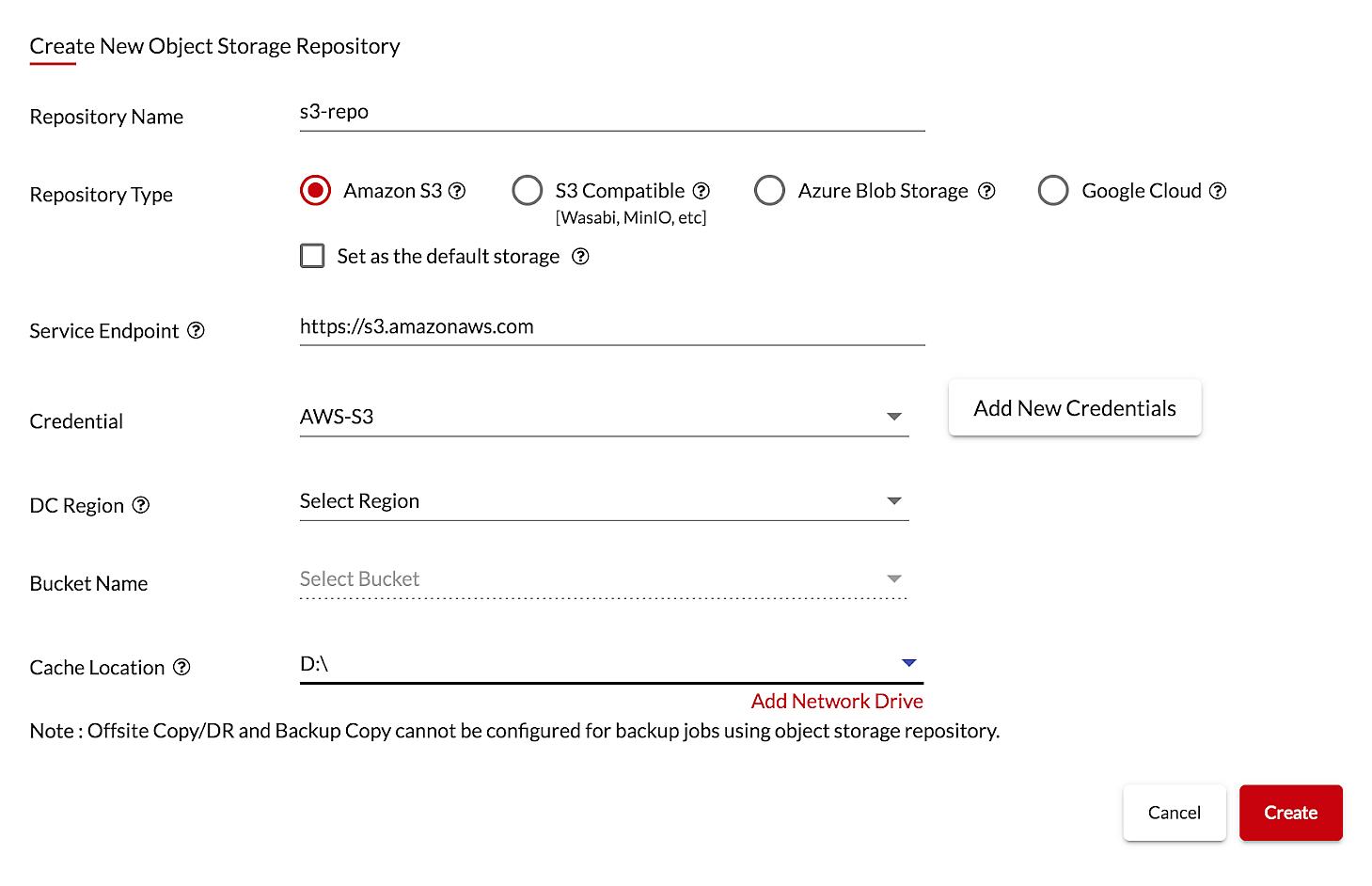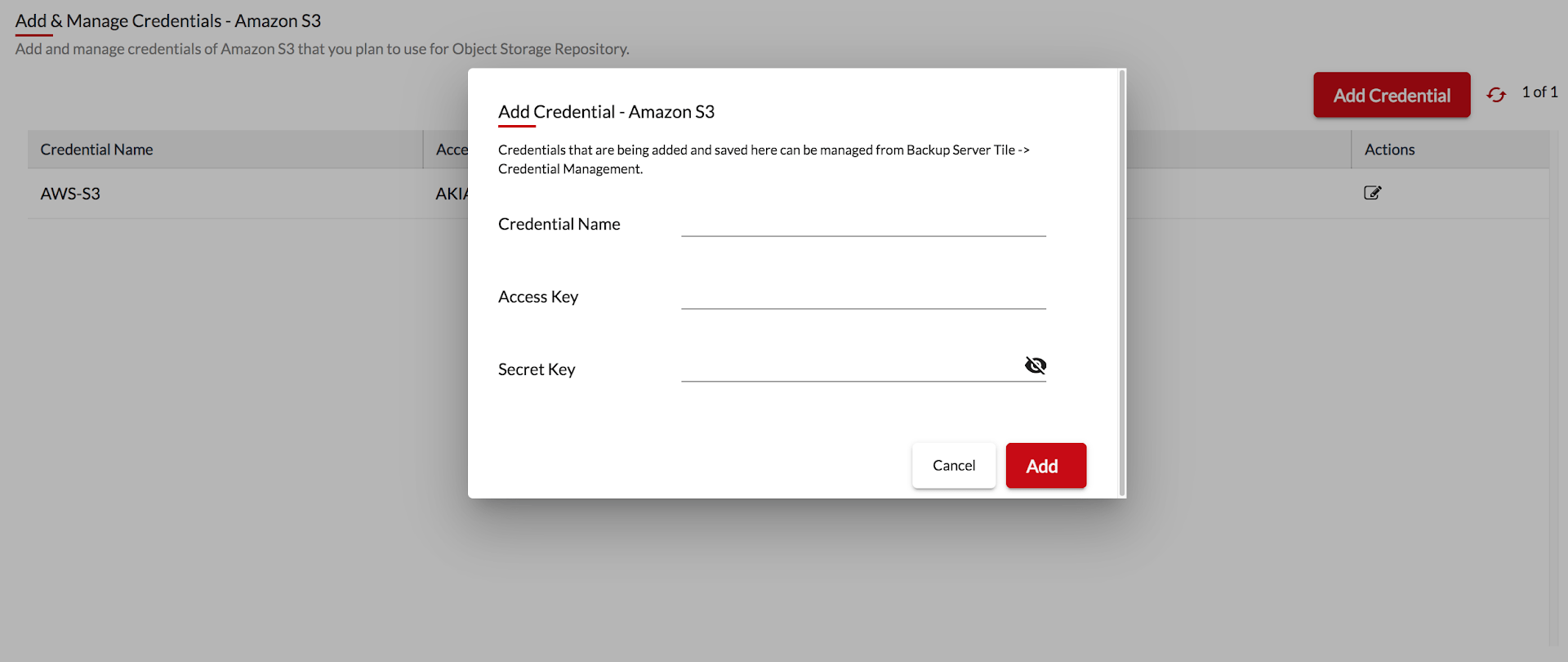About BDRSuite
BDRSuite is a Comprehensive and Cost-Effective Backup & Disaster Recovery Software designed to protect data across Data Center/Private Cloud (VMware, Hyper-V, Windows, Linux, Applications & Databases), Public Cloud (AWS), SaaS (Microsoft 365, Google Workspace), and Endpoints (Windows, Mac).
In this article, we will discuss the feature – “Amazon S3 Storage as Backup Repository” and look into step-by-step instructions on how to configure S3 storage to store backup data using BDRSuite.
Feature Overview: Amazon S3 Storage as Backup Repository
BDRSuite supports a wide range of scalable storage targets as backup repositories listed below.
- Block Storage – Local, Direct, NAS & SAN
- Object Storage – Amazon S3, Azure Blob, Google Cloud, S3 Compatible storage like Wasabi, MinIO, etc
All the storage targets can be used to store primary backup data directly and can also be used to store secondary backup copy and/or offsite copy data.
How to Configure S3 – Cloud Object Storage as Backup Repository
Step 1: Download and Install BDRSuite Backup Server. Click here for installation instructions.
Step 2: Log in to the BDRSuite Server console. Navigate to the Backup Server Tile-> Object Storage page and click on the ‘Create New Object Storage Repository’ button.
Step 3: On the Create New Object Storage Repository dialog box, enter the following:
- In the Repository Name field, specify a name for the new object storage repository
- For the Repository Type, choose the radio option: Amazon S3
- Service Endpoint field is auto-filled which enables connectivity to the Amazon S3 storage account from the BDRSuite Backup Server

Step 4: From the Credentials drop-down list, select user credentials to access your Amazon S3 cloud storage account if you already have added the S3 Storage credentials.
Otherwise, click Add New Credential button which opens a dialog box. Specify a credential name to identify your credential record, and provide the Access Key & Secret Key of your S3 Storage Account. You can manage the S3 Credentials from Backup Server Tile -> Credential Management -> Amazon S3

Step 5: Then, select the DC Region and Bucket from drop-down list. Make sure that the bucket where you want to store your backup data was created in advance.
Step 6: Choose a cache location to store backup data temporarily before uploading to S3 Storage. Local drives and Network drives added to the BDRSuite Server will be shown in the dropdown list which can be selected as Cache Location.
Step 7: Once all the fields are configured, click the ‘Create’ button upon which the S3 Storage will be added as Backup Repository.
The created AWS S3 Cloud Storage Repository can be set as default storage to store the backup data of all jobs configured in the BDRSuite Server (or) you can select the repository for specific jobs during backup configuration.
How to Backup to Amazon S3 using BDRSuite
BDRSuite supports Cloud Object Storage – Amazon S3 to store primary backup data, secondary backup copies, and offsite backups.
You can configure backups for VMware VMs, Hyper-V VMs, Windows Servers, Linux, Endpoints (Windows & Mac), Microsoft 365, and Google Workspace and store their data on Google Cloud Storage.
To know more about backup configuration, Refer to BDRSuite User Guide here
Interested in exploring BDRSuite? Request a demo or Download a 30-day free trial here
Follow our Twitter and Facebook feeds for new releases, updates, insightful posts and more.


Leave A Comment